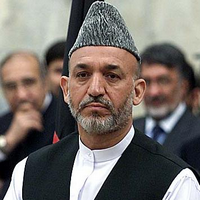Is there a method to Afghan President Hamid Karzai's "madness"? At first glance, his recent actions -- including harsh criticism of U.S. policies, a threat to join the Taliban resistance, diplomatic maneuverings in recent visits to Tehran and Beijing, and outreach to former domestic enemies -- might seem "troubling" at best, and "troubled" at worst. But on closer inspection, they all appear to have a logical purpose: to hedge Karzai's bets.
From Karzai's perspective, there are three foreseeable outcomes of the Obama administration's "surge" in Afghanistan -- and only one would be particularly beneficial to his interests. That would be if U.S. and NATO forces, over the next year, largely eliminate the Taliban insurgency, while the corresponding "civilian surge" extends -- in some instances for the first time -- the writ of the Kabul government to the provinces. In that case, foreign forces would largely depart by the end of 2011, leaving Karzai as undisputed master of the country, with the United States continuing to provide large amounts of aid and assistance for the foreseeable future.
But the other two possibilities are fraught with peril. What happens if, in the course of the surge, the Obama team decides that Karzai is increasingly part of the problem, rather than part of the solution? What happens if President Barack Obama has a conversation similar to the one former Soviet President Mikhail Gorbachev had with his advisers back in 1986? Discussing Soviet failures in Afghanistan, Gorbachev said, "The main reason that there has been no national consolidation so far is that Comrade [Babrak] Karmal is hoping to continue sitting in Kabul with our help." Gorbachev subsequently helped to engineer Karmal's departure from the presidency and replaced him with Mohamed Najibullah.

